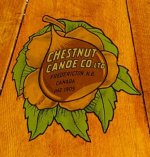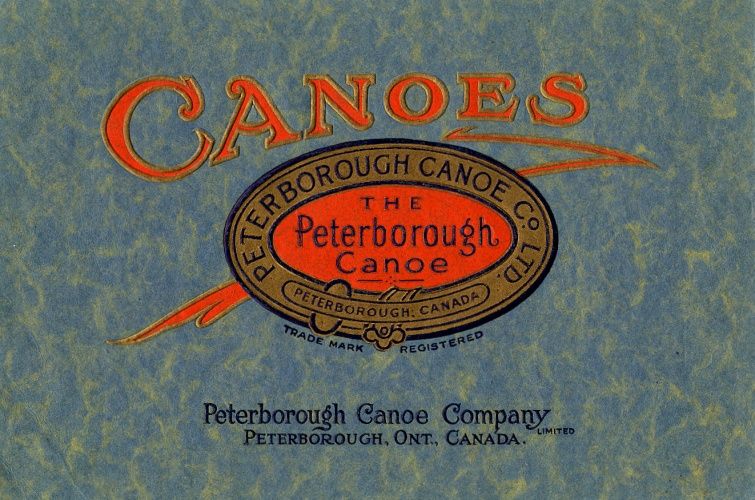In the following article, Canadian patent lawyer Mario Theriault gives some general history of the Chestnut Canoe Company and then focuses on how William T. Chestnut used and misused a Canadian patent, which purportedly gave Chestnut the exclusive right to manufacture and sell rib/plank/canvas canoes in Canada.
Chestnut was issued this Canadian patent in 1905 even though rib/plank/canvas canoes had been made in Maine for many years, perhaps decades, and imported into Canada by Morris and Old Town, at least, and also had been manufactured in Ontario by the Peterborough Canoe Company prior to 1905. Under such circumstances, an American patent would not have been issued.
Peterborough took Chestnut to court to litigate the validity of the patent. The court case lingered on for several years and was ultimately dropped for reasons that differ among Theriault and other authors. In any event, the patent expired probably by 2011 and Chestnut never succeeded in legally enforcing the patent against anyone. Nevertheless, Chestnut tried during many years to intimidate competitors from making rib/plank/canvas canoes by touting their supposed patent. This, and for marketing reasons, is why they displayed "Pat. 1905" on their deck decal for, as far as I know, the life of the company.


 nouzie.com
nouzie.com
Chestnut was issued this Canadian patent in 1905 even though rib/plank/canvas canoes had been made in Maine for many years, perhaps decades, and imported into Canada by Morris and Old Town, at least, and also had been manufactured in Ontario by the Peterborough Canoe Company prior to 1905. Under such circumstances, an American patent would not have been issued.
Peterborough took Chestnut to court to litigate the validity of the patent. The court case lingered on for several years and was ultimately dropped for reasons that differ among Theriault and other authors. In any event, the patent expired probably by 2011 and Chestnut never succeeded in legally enforcing the patent against anyone. Nevertheless, Chestnut tried during many years to intimidate competitors from making rib/plank/canvas canoes by touting their supposed patent. This, and for marketing reasons, is why they displayed "Pat. 1905" on their deck decal for, as far as I know, the life of the company.


Maritime Inventions: Chestnut Canoe - Nouzie
Wood-and-Canvas Canoe: Inventor: William T. Chestnut, Fredericton, New Brunswick. Patent Nos. (CA 91,848, February 23, 1905; CA 93,181, May 11, 1905; CA 117,374, March 23, 1909) ... <a class="more-link" href="https://nouzie.com/maritime-inventions-chestnut-canoe/">Continue reading →</a>
 nouzie.com
nouzie.com

